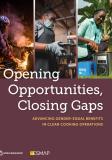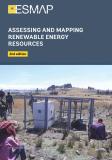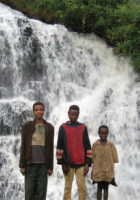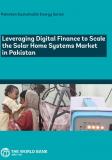Publications
Energy poverty is a global problem: access to energy services is crucial to meet basic household needs, deliver and access public services, and generate income. Less than 10 percent of Sub-Saharan (SSA) rural households have access to electricity, with an overall access rate below 25 percent.
One of the main obstacles for SSA electrification practitioners is the difficulty in obtaining practical and timely knowledge on how to overcome economic, technical, institutional, and political barriers to electrification in their day-to-day work. Considering that under the business-as-usual scenario only about 50 percent of the SSA population will have access to electricity by 2030, policy makers at national and international levels are setting more ambitious targets to achieve universal access. Electrification practitioners are the ones expected to make these achievements possible.




